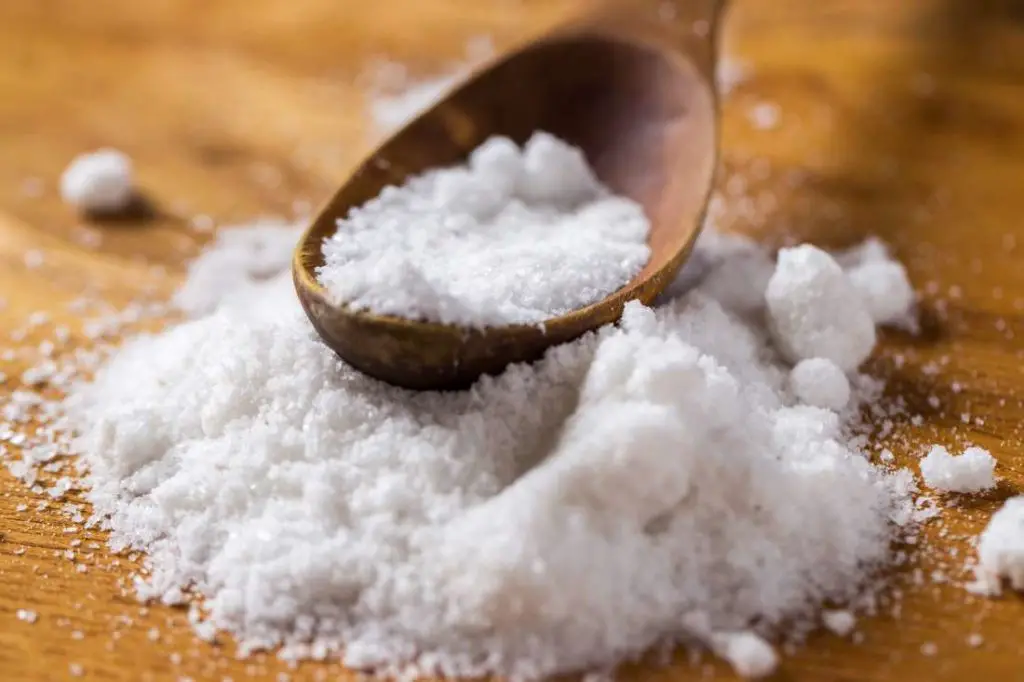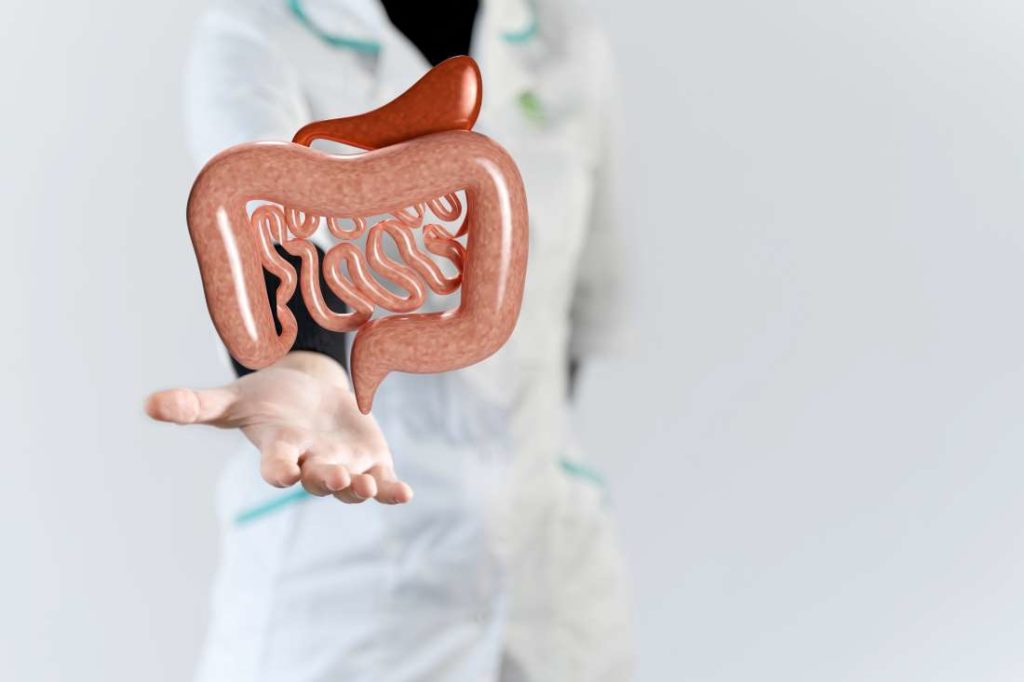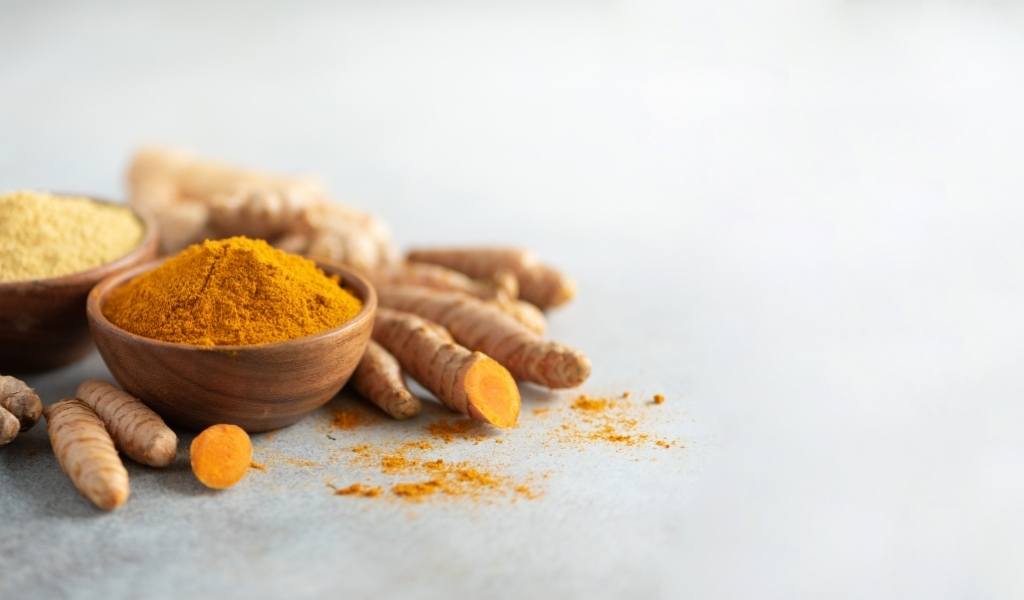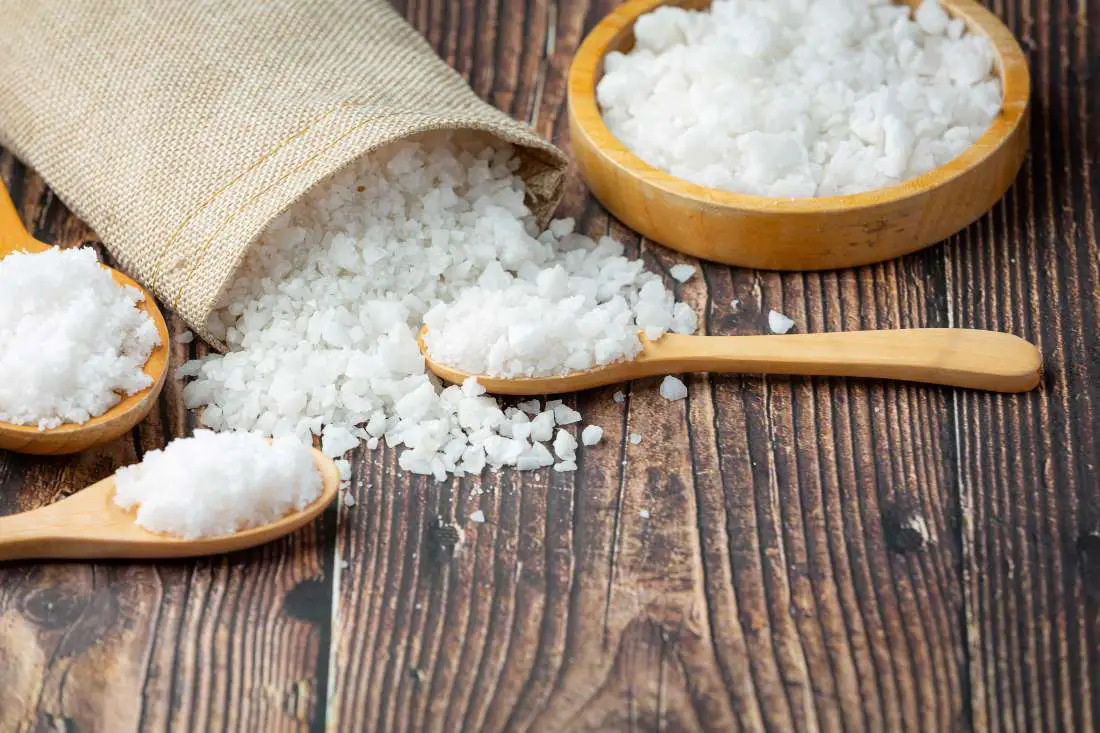There’s little doubt that salt makes food taste better. That’s why it’s in every processed and packaged food in the grocery store, often in copious amounts. Salt is 40% sodium and 60% chloride, and you need both minerals in your diet to sustain life.
But you might wonder whether salt is high in histamine and whether it can trigger histamine intolerance symptoms. What does science say?
Histamine Intolerance, Diet, and Salt
Is salt high in histamine? As you know, we’re all a little different. Some people with histamine intolerance can tolerate foods that others can’t. The amount matters too.
Small quantities of a high-histamine food in the context of a low-histamine diet won’t have the same effects as eating a large quantity of a high-histamine food or one that boosts histamine release.
It goes back to the idea of the histamine “bucket.” You fill it up with histamine in your diet, but there’s a level at which the bucket is so full that it overwhelms your body’s ability to break it down. Plus, you may have more available diamine oxidase from someone else with histamine intolerance.
More diamine oxidase means you can break down more histamine, and there’s less of it around to trigger histamine intolerance symptoms.
Whether salt is high in histamine isn’t something well studied. Plus, there are so many types of salt. There’s processed table salt fortified with iodine, and there are unprocessed forms of salt like sea salt and kosher salt.
Although unprocessed salt sounds healthier, the iodine in table salt is important in moderation for healthy thyroid function. (9) Without iodized table salt, there would be more cases of iodine deficiency. Sea salt and other forms of unprocessed salt don’t contain significant quantities of iodine.

Does Salt Increase Histamines?
There’s no evidence that salt increases histamines, but that doesn’t mean salt is a healthy addition to your diet if you have histamine intolerance. Despite its low level of preformed histamine, it may still be harmful to your health if you have histamine intolerance.
First, research makes it clear that salt influences the activity of immune cells in certain parts of the body, including the kidneys, skin, and intestinal tract. (5) Another way science shows salt may affect the immune system and the production of histamine is by impacting the gut microbiome. (5)
A review published in the American Journal of Physiology: Heart and Circulatory Physiology points out that: (6)
“High-sodium diets promote local and systemic tissue inflammation and impair intestinal anatomy compared with low sodium intake in both human and animal studies.” (American Journal of Physiology Heart and Circulatory Physiology)
This raises questions about whether a salt-rich, high-sodium diet triggers inflammation by disrupting the gut microbiome, and yes, this can have implications for histamine intolerance. They even propose that high-salt diets may partially raise blood pressure through changes to the gut microbiome. (6) That’s not the only mechanism, but it may be a factor.
But what about the effects of salt and sodium on histamine intolerance? One study found that salt stimulates the production of a type of immune cell linked with allergies. The researchers in this study point out that an increase in this type of immune cell, called type 2 T helper cells, or TH2 cells, makes people more susceptible to allergy-related symptoms.
Whether this increases histamine burden in people who don’t have allergies is unclear. It’s an area that needs more research. However, it suggests eating a high salt diet could be harmful if you have allergies or histamine intolerance.

A High-Salt Diet May Be Harmful to Autoimmune Conditions
Previous studies show that a high-salt diet may power up the autoimmune response in people with autoimmune disease. The Yale researchers found that mice who consumed more salt formed more T-cells linked to autoimmunity. Plus, researchers found that eating salty fast food also boosted the production of cells that fuel whole-body inflammation.
So, a high-sodium diet isn’t a good option if you have an autoimmune disease, and may worsen allergy symptoms. Is salt high in histamine? There’s no evidence that it contains preformed histamine, but consuming a lot of it could increase inflammation, and that’s harmful if you have histamine intolerance or not.
The best kind of diet to eat if you have histamine intolerance is an anti-inflammatory diet that’s low in high-histamine foods and excludes foods that trigger histamine release. (8) This includes various fresh foods that are not known to be high in histamine or increase your body’s histamine burden.
Beyond Histamine Intolerance: The Effects of Salt
If you have other health conditions, your health care provider may recommend you reduce salt in your diet. For example, if you have cardiovascular disease, high blood pressure, or chronic kidney disease, they may advise you to go on a lower sodium diet and limit the amount of salt in your diet. So, consider how much salt you’ll include in your diet.
According to Harvard Health, the average American consumes around 1.5 teaspoons of salt per day, which is more than what the human body needs for optimal health. (1)
The richest source of sodium in Western diets is processed and packaged foods. Manufacturers add salt to make their offerings taste better, so you’ll eat and buy more. Almost every packaged product you pick up at the supermarket has a significant amount of salt, even if it doesn’t taste salty. It’s the “default” seasoning.
What many people don’t realize is that the salt in packaged foods usually doesn’t contain iodine, like iodized table salt. (2) So, you’re not even getting the benefits of adding iodine to your diet when you eat packaged products. Plus, if you have histamine intolerance, it’s best to eat food in its freshest state and without additives. You won’t get that from packaged foods.

Use Low-Histamine Spices to Flavor Your Food
Rather than going heavy on the salt, choose low-histamine spices like ginger, garlic, cumin, turmeric, and caraway to add flavor to your foods. These foods also have antioxidant and anti-inflammatory activity, which makes them beneficial. The more you stay away from salt, the less your taste buds will crave it. Try it! It works.
The Bottom Line
Is salt high in histamine? Salt that’s free of additives is not known to be high in histamine, but consuming too much of it could affect your immune system in a way that worsens histamine intolerance symptoms, especially if you have allergies or an autoimmune condition too. If further studies confirm that a diet high in salt disrupts the gut microbiome, it’s another way salt could be harmful if you have histamine intolerance.
References:
- “Salt and Sodium – Harvard T.H. Chan School of Public Health.” https://www.hsph.harvard.edu/nutritionsource/salt-and-sodium/.
- “Salt in processed foods – IGN.” https://www.ign.org/rp.htm?cmsaction=get_document&page_id=142003289.
- Cockcroft DW, Killian DN, Mellon JJ, Hargreave FE. Bronchial reactivity to inhaled histamine: a method and clinical survey. Clin Allergy. 1977 May;7(3):235-43. doi: 10.1111/j.1365-2222.1977.tb01448.x. PMID: 908121.
- “Salt revs up allergy-activating immune cells .” 22 Feb. 2019, https://cen.acs.org/biological-chemistry/biochemistry/Salt-revs-allergy-activating-immune/97/web/2019/02.
- “The role of sodium in modulating immune cell function ….” 25 Jun. 2019, https://www.nature.com/articles/s41581-019-0167-y.
- “Sodium, hypertension, and the gut: does the gut microbiota ….” https://pubmed.ncbi.nlm.nih.gov/31585045/.
- “Yale researchers identify salt as a trigger of autoimmune ….” 06 Mar. 2013, https://medicine.yale.edu/news-article/yale-researchers-identify-salt-as-a-trigger-of-autoimmune-diseases/.
- Comas-Basté O, Sánchez-Pérez S, Veciana-Nogués MT, Latorre-Moratalla M, Vidal-Carou MDC. Histamine Intolerance: The Current State of the Art. Biomolecules. 2020 Aug 14;10(8):1181. doi: 10.3390/biom10081181. PMID: 32824107; PMCID: PMC7463562.
- Chung HR. Iodine and thyroid function. Ann Pediatr Endocrinol Metab. 2014 Mar;19(1):8-12. doi: 10.6065/apem.2014.19.1.8. Epub 2014 Mar 31. PMID: 24926457; PMCID: PMC4049553. https://pubmed.ncbi.nlm.nih.gov/24926457/
- “Influence of Salt Concentration on Histamine Formation in Fermented Tuna Viscera (Dayok)”. Www.Scirp.Org, 2023, https://www.scirp.org/html/9-2700299_17517.htm. Accessed 19 Sep 2023.

